Hello again Global Impact readers,
The last year was a good time for the world’s richest people to get even richer.
While the coronavirus pandemic upended many peoples’ lives and severely damaged the global economy, the well-to-do were able to take advantage of the rapidly changing opportunities and avoid the many pitfalls that resulted from the global health emergency.
But the rise in wealth of the rich also increased the income gap with the rest of the population, exacerbating a series of problems that have dogged society for years.
This week, Eugene Tang, who heads the business desk here at the SCMP, takes a closer look at how the wealthy fared and the impact of the rising wealth gap on Hong Kong.
Best,
John Carter
Senior Editor, Political EconomyLet them eat cake? The rising fortunes of the wealthy highlight societal problems
The richest people on the planet got even richer over the last year, even as the world’s worst public health crisis is poised to claim its 3 millionth life.
China’s capital city, the seat of power for the ruling Communist Party, surpassed New York - the paragon of market capitalism – as the city with the most US dollar-denominated billionaires last year, according to Forbes’ annual rich list released on April 7.
Beijing added 33 US dollar billionaires in 2020, and now is home to 100 of these ultra-wealthy people, narrowly beating out New York, which added seven billionaires last year and currently hosts 99, according to the 2021 Forbes World’s Billionaires List.
The “Big Apple” lost its No. 1 ranking for the first time in seven years, according to Forbes. This is Beijing’s first top ranking, a testament to the speed at which the capital of the world’s second-largest economy bounced back from the coronavirus pandemic, the magazine said.
A buoyant stock market that has benefited technology industries in particular, as well as China’s more resilient economy and its quick containment of the pandemic, boosted the fortunes of these billionaires. The combined net worth of New York’s billionaires, however, remained US$80 billion greater than that of their counterparts in Beijing.Technology and social media moguls from the US and China dominated the list of the world’s wealthiest self-made billionaires who are under 40 years old, according to the 10th edition of the ranking produced by Hurun Research Institute. Beijing’s richest resident was Zhang Yiming, the founder of social media sensation TikTok and chief executive of parent firm ByteDance, who saw his net worth double to US$35.6 billion. In contrast, Michael Bloomberg, New York’s richest resident, had a fortune worth US$59 billion.
Defying the trend is Zhong Shanshan, the chairman of bottled water dispenser Nongfu Spring, who topped most wealth ranking surveys with a fortune estimated at US$68.5 billion. The entrepreneur, 66, was briefly Asia’s wealthiest person, eclipsing India’s Mukesh Ambani.
Collectively, Hong Kong’s wealthy residents are feeling the pinch after a series of events that devastated the local economy, according to analysts and new data, while their mainland Chinese counterparts go from strength to strength. Figures released in February by Hurun Report showed the number of US dollar millionaires in Hong Kong fell in 2019 as the city was brought to a virtual standstill by a mass protest movement. It was the only Chinese city in Hurun’s top 10 to report a lower number in the period.
One in every 125 of Hong Kong’s residents had net assets exceeding US$5 million, excluding property, according to a survey by Wealth X. The city was ranked fifth globally in density of very rich people, according to the survey. Li Ka-shing, known as “Superman” by Hong Kong residents for his deal-making prowess and his nose for investments, topped the city’s ranking as the richest tycoon. Coincidentally, a luxury apartment at 21 Borrett Road built by his flagship company CK Asset Holdings sold in February for HK$459.4 million through tender, which sets the record as the most expensive address in Asia by price per square foot.
The increase in the numbers of the very rich spurred developers to rise to cater to their whims and expensive fancies. One of the most outlandish projects to emerge in Hong Kong was a HK$4 billion (US$514 million) mansion proposed by China Evergrande Group near the city’s border with Shenzhen, boasting 240,000 square feet (22,230 square metres) of living space, equivalent to 180 medium-sized flats at Taikoo Shing, the city’s largest housing estate. With the average living space of 200 square feet per person in Hong Kong, this one mansion alone, with eight bedrooms and four private lifts, will have enough space to fit 1,200 people.
That concentration of wealth stands in stark contrast to the immense poverty at the underbelly of Hong Kong society, with one in five Hongkongers living below the government’s poverty line in 2018. The yawning wealth gap, combined with a host of social issues from the unaffordability of housing to the lack of universal suffrage, contributed to the outpouring of grievances that led to the anti-government protests in 2019.
- South China Morning Post, SCMP -
Hello again Global Impact readers,
The last year was a good time for the world’s richest people to get even richer.
While the coronavirus pandemic upended many peoples’ lives and severely damaged the global economy, the well-to-do were able to take advantage of the rapidly changing opportunities and avoid the many pitfalls that resulted from the global health emergency.
But the rise in wealth of the rich also increased the income gap with the rest of the population, exacerbating a series of problems that have dogged society for years.
This week, Eugene Tang, who heads the business desk here at the SCMP, takes a closer look at how the wealthy fared and the impact of the rising wealth gap on Hong Kong.
Best,
John Carter
Senior Editor, Political EconomyLet them eat cake? The rising fortunes of the wealthy highlight societal problems
The richest people on the planet got even richer over the last year, even as the world’s worst public health crisis is poised to claim its 3 millionth life.
China’s capital city, the seat of power for the ruling Communist Party, surpassed New York - the paragon of market capitalism – as the city with the most US dollar-denominated billionaires last year, according to Forbes’ annual rich list released on April 7.
Beijing added 33 US dollar billionaires in 2020, and now is home to 100 of these ultra-wealthy people, narrowly beating out New York, which added seven billionaires last year and currently hosts 99, according to the 2021 Forbes World’s Billionaires List.
The “Big Apple” lost its No. 1 ranking for the first time in seven years, according to Forbes. This is Beijing’s first top ranking, a testament to the speed at which the capital of the world’s second-largest economy bounced back from the coronavirus pandemic, the magazine said.
A buoyant stock market that has benefited technology industries in particular, as well as China’s more resilient economy and its quick containment of the pandemic, boosted the fortunes of these billionaires. The combined net worth of New York’s billionaires, however, remained US$80 billion greater than that of their counterparts in Beijing.Technology and social media moguls from the US and China dominated the list of the world’s wealthiest self-made billionaires who are under 40 years old, according to the 10th edition of the ranking produced by Hurun Research Institute. Beijing’s richest resident was Zhang Yiming, the founder of social media sensation TikTok and chief executive of parent firm ByteDance, who saw his net worth double to US$35.6 billion. In contrast, Michael Bloomberg, New York’s richest resident, had a fortune worth US$59 billion.
Defying the trend is Zhong Shanshan, the chairman of bottled water dispenser Nongfu Spring, who topped most wealth ranking surveys with a fortune estimated at US$68.5 billion. The entrepreneur, 66, was briefly Asia’s wealthiest person, eclipsing India’s Mukesh Ambani.
Collectively, Hong Kong’s wealthy residents are feeling the pinch after a series of events that devastated the local economy, according to analysts and new data, while their mainland Chinese counterparts go from strength to strength. Figures released in February by Hurun Report showed the number of US dollar millionaires in Hong Kong fell in 2019 as the city was brought to a virtual standstill by a mass protest movement. It was the only Chinese city in Hurun’s top 10 to report a lower number in the period.
One in every 125 of Hong Kong’s residents had net assets exceeding US$5 million, excluding property, according to a survey by Wealth X. The city was ranked fifth globally in density of very rich people, according to the survey. Li Ka-shing, known as “Superman” by Hong Kong residents for his deal-making prowess and his nose for investments, topped the city’s ranking as the richest tycoon. Coincidentally, a luxury apartment at 21 Borrett Road built by his flagship company CK Asset Holdings sold in February for HK$459.4 million through tender, which sets the record as the most expensive address in Asia by price per square foot.
The increase in the numbers of the very rich spurred developers to rise to cater to their whims and expensive fancies. One of the most outlandish projects to emerge in Hong Kong was a HK$4 billion (US$514 million) mansion proposed by China Evergrande Group near the city’s border with Shenzhen, boasting 240,000 square feet (22,230 square metres) of living space, equivalent to 180 medium-sized flats at Taikoo Shing, the city’s largest housing estate. With the average living space of 200 square feet per person in Hong Kong, this one mansion alone, with eight bedrooms and four private lifts, will have enough space to fit 1,200 people.
That concentration of wealth stands in stark contrast to the immense poverty at the underbelly of Hong Kong society, with one in five Hongkongers living below the government’s poverty line in 2018. The yawning wealth gap, combined with a host of social issues from the unaffordability of housing to the lack of universal suffrage, contributed to the outpouring of grievances that led to the anti-government protests in 2019.
|
Was this newsletter forwarded to you? Subscribe here
|

|
|
|
|
|
17 April 2021 |
|
Hello again Global Impact readers,
The last year was a good time for the world’s richest people to get even richer.
While the coronavirus pandemic upended many peoples’ lives and severely damaged the global economy, the well-to-do were able to take advantage of the rapidly changing opportunities and avoid the many pitfalls that resulted from the global health emergency.
But the rise in wealth of the rich also increased the income gap with the rest of the population, exacerbating a series of problems that have dogged society for years.
This week, Eugene Tang, who heads the business desk here at the SCMP, takes a closer look at how the wealthy fared and the impact of the rising wealth gap on Hong Kong.
Best,
John Carter
Senior Editor, Political Economy
Let them eat cake? The rising fortunes of the wealthy highlight societal problems
The richest people on the planet got even richer over the last year, even as the world’s worst public health crisis is poised to claim its 3 millionth life.
China’s capital city, the seat of power for the ruling Communist Party, surpassed New York - the paragon of market capitalism – as the city with the most US dollar-denominated billionaires last year, according to Forbes’ annual rich list released on April 7.
Beijing added 33 US dollar billionaires in 2020, and now is home to 100 of these ultra-wealthy people, narrowly beating out New York, which added seven billionaires last year and currently hosts 99, according to the 2021 Forbes World’s Billionaires List.
The “Big Apple” lost its No. 1 ranking for the first time in seven years, according to Forbes. This is Beijing’s first top ranking, a testament to the speed at which the capital of the world’s second-largest economy bounced back from the coronavirus pandemic, the magazine said.
A buoyant stock market that has benefited technology industries in particular, as well as China’s more resilient economy and its quick containment of the pandemic, boosted the fortunes of these billionaires. The combined net worth of New York’s billionaires, however, remained US$80 billion greater than that of their counterparts in Beijing.
Technology and social media moguls from the US and China dominated the list of the world’s wealthiest self-made billionaires who are under 40 years old, according to the 10th edition of the ranking produced by Hurun Research Institute. Beijing’s richest resident was Zhang Yiming, the founder of social media sensation TikTok and chief executive of parent firm ByteDance, who saw his net worth double to US$35.6 billion. In contrast, Michael Bloomberg, New York’s richest resident, had a fortune worth US$59 billion.
Defying the trend is Zhong Shanshan, the chairman of bottled water dispenser Nongfu Spring, who topped most wealth ranking surveys with a fortune estimated at US$68.5 billion. The entrepreneur, 66, was briefly Asia’s wealthiest person, eclipsing India’s Mukesh Ambani.
Collectively, Hong Kong’s wealthy residents are feeling the pinch after a series of events that devastated the local economy, according to analysts and new data, while their mainland Chinese counterparts go from strength to strength.
Figures released in February by Hurun Report showed the number of US dollar millionaires in Hong Kong fell in 2019 as the city was brought to a virtual standstill by a mass protest movement. It was the only Chinese city in Hurun’s top 10 to report a lower number in the period.
One in every 125 of Hong Kong’s residents had net assets exceeding US$5 million, excluding property, according to a survey by Wealth X. The city was ranked fifth globally in density of very rich people, according to the survey. Li Ka-shing, known as “Superman” by Hong Kong residents for his deal-making prowess and his nose for investments, topped the city’s ranking as the richest tycoon. Coincidentally, a luxury apartment at 21 Borrett Road built by his flagship company CK Asset Holdings sold in February for HK$459.4 million through tender, which sets the record as the most expensive address in Asia by price per square foot.
The increase in the numbers of the very rich spurred developers to rise to cater to their whims and expensive fancies. One of the most outlandish projects to emerge in Hong Kong was a HK$4 billion (US$514 million) mansion proposed by China Evergrande Group near the city’s border with Shenzhen, boasting 240,000 square feet (22,230 square metres) of living space, equivalent to 180 medium-sized flats at Taikoo Shing, the city’s largest housing estate. With the average living space of 200 square feet per person in Hong Kong, this one mansion alone, with eight bedrooms and four private lifts, will have enough space to fit 1,200 people.
That concentration of wealth stands in stark contrast to the immense poverty at the underbelly of Hong Kong society, with one in five Hongkongers living below the government’s poverty line in 2018. The yawning wealth gap, combined with a host of social issues from the unaffordability of housing to the lack of universal suffrage, contributed to the outpouring of grievances that led to the anti-government protests in 2019.
|
|
|
|
|
|

|
|
Are tycoons’ tangled ties to blame for Hong Kong’s anger?
|
| • |
In a series of in-depth articles on the unrest rocking Hong Kong, South China Morning Post goes behind the headlines to look at the underlying issues, current state of affairs, and where it is all heading | | | • | In this latest instalment, the Post looks at the cosy ties between Hong Kong’s business elites and politics in the city and in Beijing
|
|
|
On a sunny morning in early September 2010, Hong Kong’s wealthiest man Li Ka-shing was invited to speak in Shenzhen and was granted an exclusive audience with then Chinese President Hu Jintao. What was unusual about the episode, held during a commemoration of Shenzhen’s 30th anniversary as the special economic zone to spearhead China’s economic reforms, was that Li was the sole Hongkonger to be received by China’s head of state. He was also the only Hong Kong businessman to speak at Shenzhen’s birthday party, sharing the limelight with three hometown captains of industry: BYD’s Chairman Wang Chuanfu, China Merchant Holdings’ Chairman Fu Yuning and Tencent Holdings’ founder Pony Ma Huateng. Read more
|
|
|
|
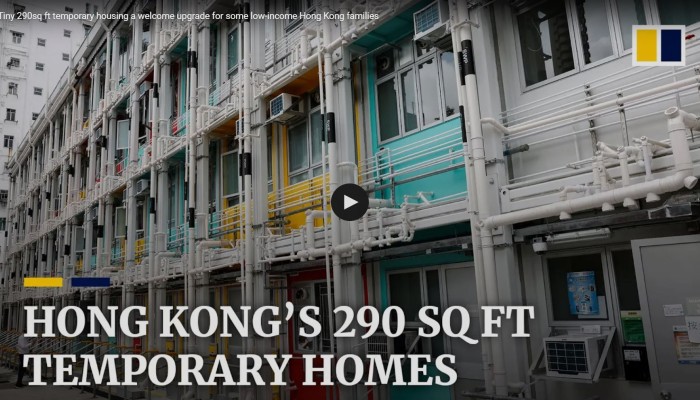
|
|
|
|
|
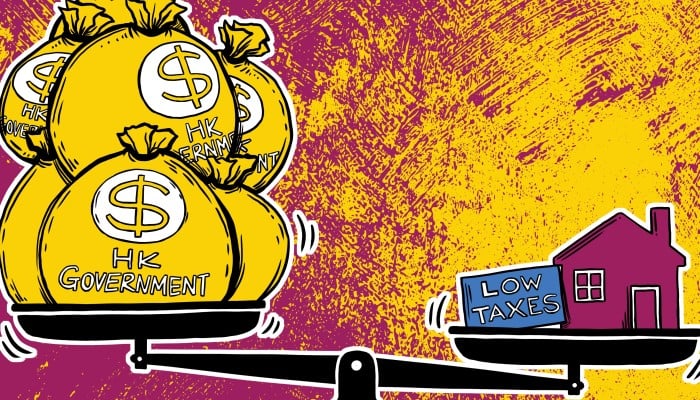
|
|
Are tiny homes at sky-high costs Hong Kong’s price for low taxes?
|
| • |
In a new series delving beyond the social unrest in Hong Kong to survey the city’s deep-rooted problems, the Post is focusing on the role of housing in causing great disaffection in society. | | | • | In this first instalment, we examine how the issue of high land prices is linked to government financing and the low-tax environment.
|
|
|
For two hours a day in the past fortnight, Edward Chan hung around after work at the Prince Edward metro station in Kowloon. Teenagers continued to gather at the station, and Chan, who works in logistics, found himself acting as their counsellor, dispensing advice to the youth. Read more
|
|
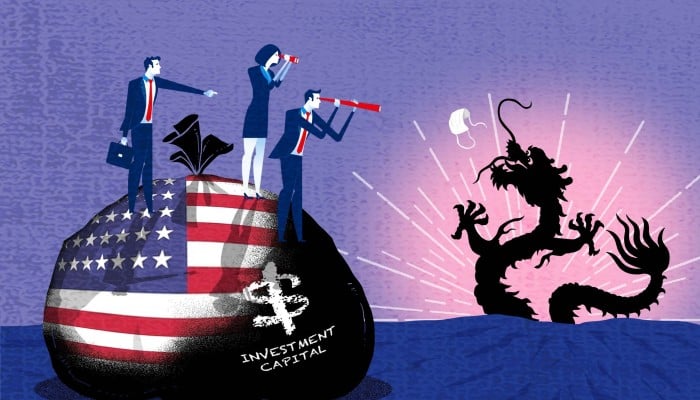
|
|
US funds ignore China tiff to find yield for their trillion dollar problem
|
| • |
The average value of new listings by Chinese companies rose 204 per cent last year in the United States, outpacing the 49.6 per cent gain by American IPOs or the 30.9 per cent increase among European companies, according to Bloomberg’s data | | | • | American investors owned US$813 billion worth of stocks and bonds issued by mainland Chinese companies at the end of 2019
|
|
|
In the first of a two-part series on global capital flows, Jodi Xu-Klein reports on how American institutional investors and fund managers are looking beyond the lowest point of US-China relations to pour their funds into Chinese stocks, bonds, exchange-traded funds and other assets in search of higher returns in an age of zero interest rates. Click here for the second part. On January 22, two days after a new occupant was sworn into the Oval Office, a Beijing-based provider of vaping products and e-cigarettes started trading on the New York Stock Exchange, the first Chinese company to tap Wall Street for funds even as US-China relations deteriorated to their worst point in decades. Read more
|
|

|
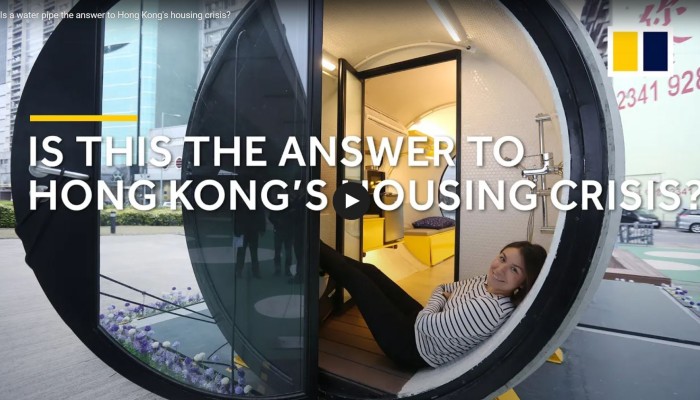
|
|
|

|
|
Why the Hong Kong stock market is making a massive comeback
|
| • |
Fear of missing out on some of world’s best-performing stocks has made Hong Kong a gateway for Chinese capital seeking overseas investment | | | • | Chinese enterprises accounted for 52 per cent of listed companies in Hong Kong in January
|
|
|
In the second of a two-part series on global capital flows, Zhang Shidong explores the sentiment behind record-breaking Chinese fund flows into Hong Kong stocks. It also shows why the city has become an indispensable gateway for global capital seeking to juice returns from some of China’s best companies. Click here for the first part. Few could have foreseen that the first three trading weeks of 2021 would turn into the best start to a new year in nearly four decades for the Hang Seng Index. Read more
|
|
|
To keep track of the latest global news developments, follow our daily coverage on our website, focus on stories about China here and about Asia here.
In our next issue, we’ll dig into the latest economic data from China and the outlook for the economy for the rest of the year.
We welcome your feedback. Email me at globalimpact@scmp.com or tweet me at @EugeneTang8.
|
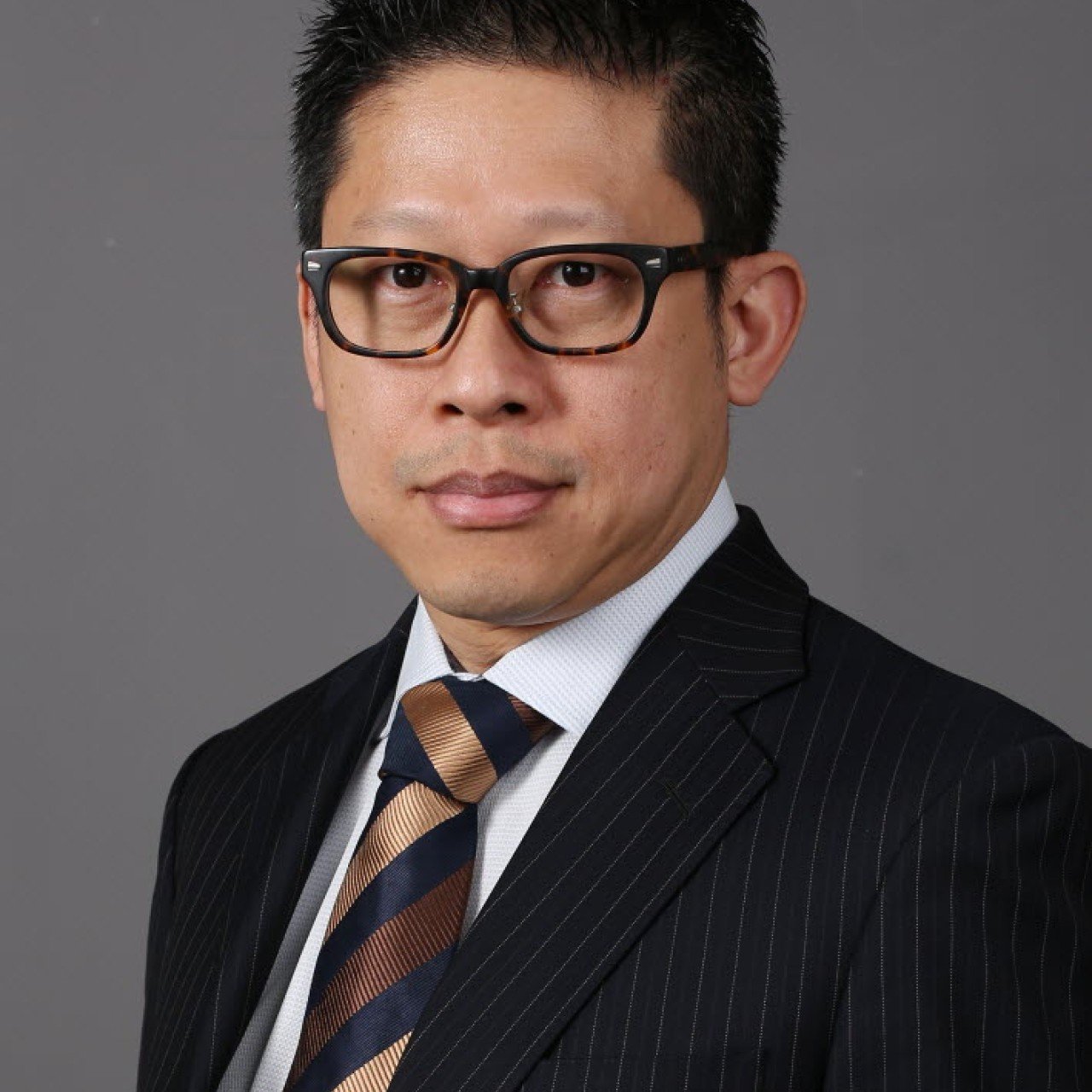
|
|
Eugene Tang
Business Editor
|
|
|
|
|
|
| SCMP NEWSLETTERS THAT MAY INTEREST YOU |

China at a Glance
A wealth of insights giving you the inside story on China every day.
China Economic Update
The latest developments from trade relations to growth rates and other key economic data.
Inside China Tech
Our weekend newsletter covering the biggest stories and updates from the tech centres of China.
VIEW AND SIGN UP
|

|
|
|
Download our app
To get push notifications direct and never miss a story as it breaks
|
|
|
|
|
Hong Kong
China
Asia
World
Economy
Business
Tech
Comment
|
|
|
|
Copyright © 2021 South China Morning Post Publishers Ltd. All rights reserved.
|
|
This newsletter is created and catered for the global news reader. Each issue will feature a news story originating from China that carries a significant macro impact on the rest of the world.
We hope to share with you a broader perspective on the emerging topics shaping our world and that we feel are revolutionising the way we understand China.
|
















